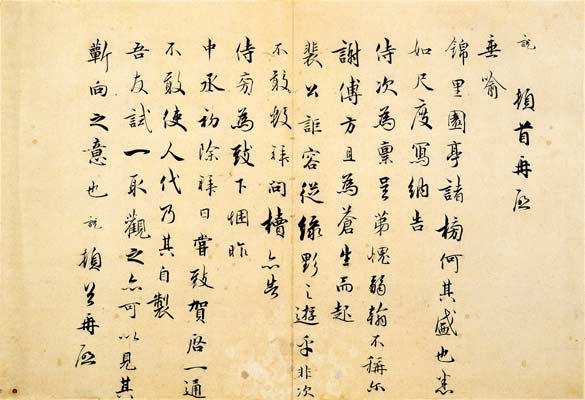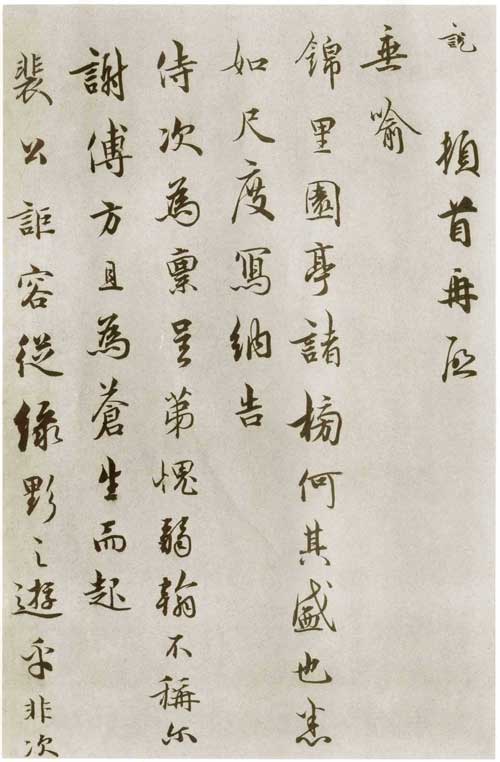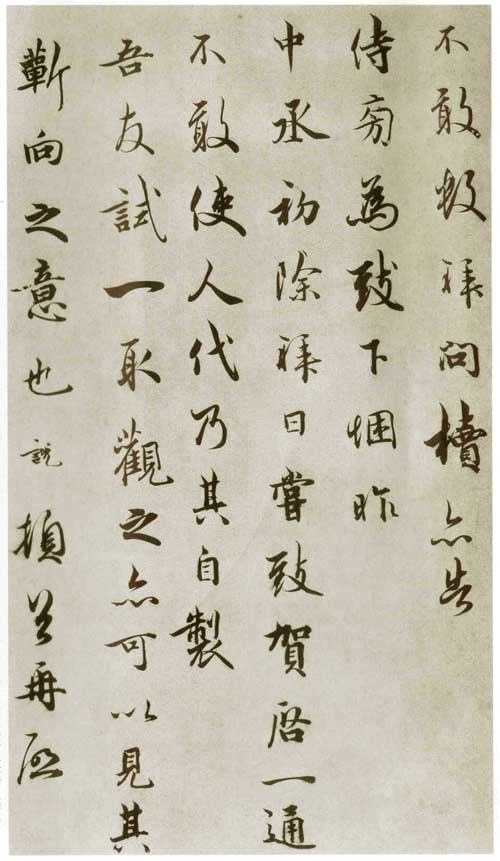Wu Shuo's courtesy name was Fu Peng and his nickname was Liantang. His birth and death are unknown. A native of Qiantang (now Hangzhou City, Zhejiang Province), he lived in Zixi, Qiantang, and was called Wu Zixi. According to records in Song poetry, he was the grandson of Wang Ling (Feng Yuan). In the 14th year of Emperor Gaozong's reign in Shaoxing (1144), in addition to Shang Shulang, he went out to know Xinzhou (today's Shangrao, Jiangxi). Shuo Gong's calligraphy has a very wide handwriting pattern and is good in regular script, running script, cursive script and Bang script. Xiaokai is known as "the best in the Song Dynasty". The cursive script is round, beautiful and flowing, and it was deeply rooted in Huang Taishi's room to get its essence. It was also written in the style of Wei Zhongyao, which is quite innovative. His original hybrid hairspring book is also quite famous. One stroke after another, the thread goes smoothly. "Han Mo Zhi" written by Zhao Gou, Emperor Gaozong of the Song Dynasty, said: "Since Shaoxing, there have been miscellaneous books on silk, but only Qiantang Wu said it."
Wu Shuo said that most of the bamboo slips handed down from generation to generation were written by hand, without restraint and freedom, regardless of clumsiness. Naturally and reasonably combined with lyrical expression. These bamboo slips can best express the calligrapher's artistic personality, and there are many excellent works among them. The calligraphy is calm and smooth, with smooth lines and smooth lines. There are "Three Poems Tie", "Mennei Tie", "Jian Liang Tie", "Thousand Character Essay" and other writings in existence.

Wu Shuo's "Chui Yu Tie" ruler slip, paper, running script, 30.2 x 44.6cm, collected by the National Palace Museum, Taipei


Explanation:
Say it after a pause before starting again. It is a metaphor for the lists of garden pavilions in Jinli. How prosperous it is. It is written as a standard. Tell the waiter to report. The third shame is that the weak Han is not worthy of his ears. Thank you Fu Fang for standing up for the common people. Pei Gong Zirong traveled from the green field. Don't dare to count the number of worshippers. Also tell the attendant. To cause despair. Yesterday, the Prime Minister celebrated the sunrise at the beginning of the day. I would like to express my congratulations to Qi Yitong. Don't dare to let others take over. It's self-control. My friend, let me give it a try. We can also see the meaning of Qi Xiang. Say it after a pause before starting again.
In the early years of the Southern Song Dynasty, most literati and calligraphers abandoned the tradition of the two kings (Wang Xizhi and Wang Xianzhi) and imitated the calligraphy style of Huang Tingjian and Mi Fu of the Northern Song Dynasty, which was still different and more bizarre. Wu Shuo neither deliberately agreed with this nor followed the popular trend. He still pursued the style of the Wei and Jin Dynasties, dominated by the two kings, and the rules of regular script in the Tang Dynasty, which had a great influence on calligraphers after the Southern Song Dynasty.
This piece of ruler-slip is written in cursive style and is a correspondence between Wu Shuo and the government. The brush strokes throughout the entire frame are light and the fonts are round and flexible: for example, the vertical strokes are more slightly curved and less square corners are used, which shows the typical style of Wang Zi (Wang Xizhi, Wang Xianzhi). The sharp edge of the pen adds a lot of elegance to the whole painting. Although Wu Shuo's achievements in running cursive script are not as good as his regular script or small regular script, the text structure of the whole work is even and the pen and ink are gentle and elegant. It is also a masterpiece of traditional calligraphy.








